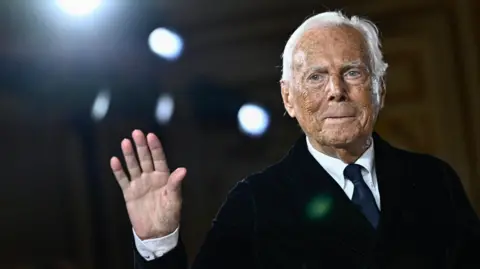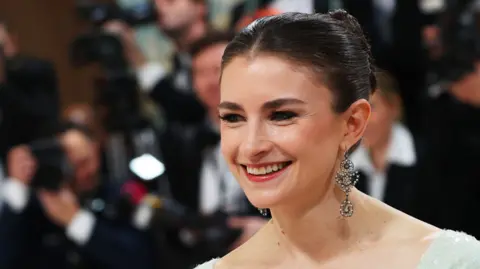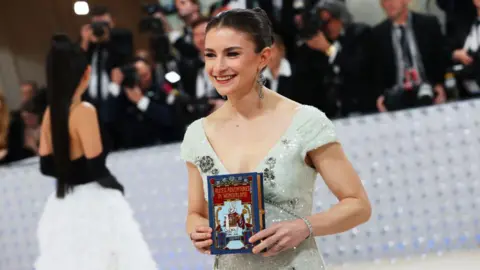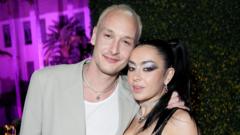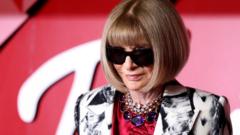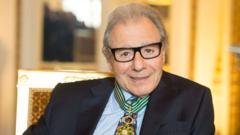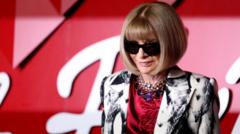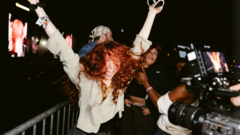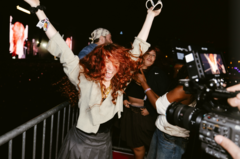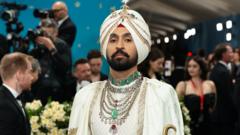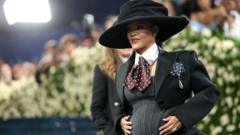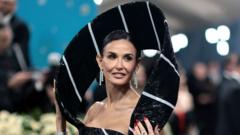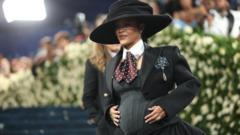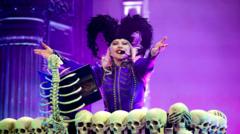In a significant shift in fashion trends, the once-celebrated demure style is fading as celebrities and designers embrace daring "free the nipple" outfits. Just last week, during the Brit Awards, pop icon Charli XCX's sheer black dress prompted a record 825 complaints to Ofcom, highlighting the growing tension between provocative fashion statements and societal expectations. Addressing the pushback during her acceptance speech, XCX remarked, “I feel like we’re in the era of ‘free the nipple,’ right?”
This trend has not been limited to award ceremonies; it has stepped onto the prestigious runways of London and Paris Fashion Weeks. Notable figures like Paris Jackson and Ice Spice showcased daringly transparent pieces, confirming that sheer clothing is becoming a staple in contemporary fashion. As Vogue noted earlier this year, “naked dressing” has transitioned from a sporadic appearance to an essential element of every seasonal collection.
Designers such as Maria Grazia Chiuri of Dior have taken this trend to new heights, weaving intricate details into their sheer pieces, thereby elevating “naked dressing” into an art form that challenges existing fashion norms. While some hail this movement as liberating and a proclamation of body positivity, critics argue it reflects a double standard—claiming that only women face scrutiny for their daring choices.
Further societal discourse emerged when stars like Julia Fox and Megan Thee Stallion appeared in revealing outfits at the Oscars. The provocative nature of these fashions has ignited passionate discussions about body autonomy, use of fashion as a statement on women’s rights, and the societal implications of objectification.
Despite some backlash against this trend, with voices like The Times’ fashion director condemning its exclusive focus on women, the momentum continues to grow. Men, too, are increasingly donning nearly naked outfits, with stars like Timothée Chalamet and Harry Styles embracing their own versions of daring fashion. As the debate rages on, the future of fashion remains entwined with these conversations about empowerment, body positivity, and the need for equity on the runway.
This trend has not been limited to award ceremonies; it has stepped onto the prestigious runways of London and Paris Fashion Weeks. Notable figures like Paris Jackson and Ice Spice showcased daringly transparent pieces, confirming that sheer clothing is becoming a staple in contemporary fashion. As Vogue noted earlier this year, “naked dressing” has transitioned from a sporadic appearance to an essential element of every seasonal collection.
Designers such as Maria Grazia Chiuri of Dior have taken this trend to new heights, weaving intricate details into their sheer pieces, thereby elevating “naked dressing” into an art form that challenges existing fashion norms. While some hail this movement as liberating and a proclamation of body positivity, critics argue it reflects a double standard—claiming that only women face scrutiny for their daring choices.
Further societal discourse emerged when stars like Julia Fox and Megan Thee Stallion appeared in revealing outfits at the Oscars. The provocative nature of these fashions has ignited passionate discussions about body autonomy, use of fashion as a statement on women’s rights, and the societal implications of objectification.
Despite some backlash against this trend, with voices like The Times’ fashion director condemning its exclusive focus on women, the momentum continues to grow. Men, too, are increasingly donning nearly naked outfits, with stars like Timothée Chalamet and Harry Styles embracing their own versions of daring fashion. As the debate rages on, the future of fashion remains entwined with these conversations about empowerment, body positivity, and the need for equity on the runway.


